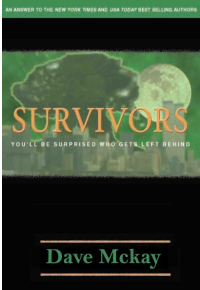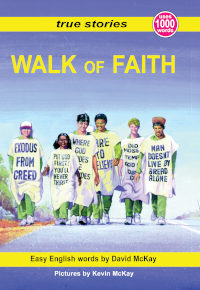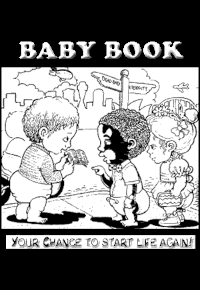 Anything closer to us looks bigger and anything closer to others looks smaller. Our 50% looks bigger and theirs looks smaller. To maintain peace, we are almost always going to have to give what seems like a minimum of 55%, and even when we do, the other side will be fully convinced that they are the ones who gave at least 55%.
Anything closer to us looks bigger and anything closer to others looks smaller. Our 50% looks bigger and theirs looks smaller. To maintain peace, we are almost always going to have to give what seems like a minimum of 55%, and even when we do, the other side will be fully convinced that they are the ones who gave at least 55%.This principle was dramatically illustrated in sociological experiments which found that people have a natural bias toward in-groups (groups to which they personally belong) and a natural bias against out-groups (groups to which they do not personally belong). This bias is such that the very same actions performed by an in-group, and seen as being virtuous actions, will very likely be seen as bad behaviour if performed by the out-group. In other words, in-group virtues are transformed into out-group vices.
 The English language has both good and bad words for almost all qualities. So that Abraham Lincoln was "thrifty" but Jews are "stingy". White Australia's disregard for the law is an expression of our "individualism", while Asian disregard for the law makes them "criminals". Our church "educates", but other religious groups "brainwash". In fact, the other groups aren't even called "churches" or "denominations", but are "sects" or "cults".
The English language has both good and bad words for almost all qualities. So that Abraham Lincoln was "thrifty" but Jews are "stingy". White Australia's disregard for the law is an expression of our "individualism", while Asian disregard for the law makes them "criminals". Our church "educates", but other religious groups "brainwash". In fact, the other groups aren't even called "churches" or "denominations", but are "sects" or "cults".To counteract this tendency, we must make greater effort to listen to those whom we find the hardest to listen to. We must learn to love the unlovely, and to sympathise with the underdog.
Largely due to media pressure, the official underdogs (or scapegoats) change from time to time, as do the groups who qualify for official tolerance, so that it becomes more acceptable tosympathise with some minorities than it does to sympathise with others. But because people have an innate need to label someone as the enemy, the media keeps up a steady supply of groups whom it is politically correct to condemn, ridicule, and shun. If you should try to see some good in the villainous group of the month, people will usually assume that you support the evils that they have associated with the group. Try defending a blackballed group sometime, and you will see just how much of a no-win situation such people are put in.
After the Tasmania massacre, for example, it was political suicide for anyone in Australia to say anything in support of the gun lobby. During the Gulf War it was un-thinkable that Saddam Hussein could be anything but a devil. Charles Manson, Jim Jones, the Waco Texas group all have been painted as the personification of evil. But real people are a mixture of both good and evil. Closer to home, terms like "dole bludger", "peadophile", and "cult leader" have become labels which suggest that the people receiving them are incapable of doing anything good.
 A similar problem arises when people become strongly committed to a cause, especially one that seems overwhelmingly just. The issues become so black and white to them that anyone who dares to oppose or even question the Cause must be incredibly evil.
A similar problem arises when people become strongly committed to a cause, especially one that seems overwhelmingly just. The issues become so black and white to them that anyone who dares to oppose or even question the Cause must be incredibly evil. While we oppose abortion and refuse to go to war, for example, we have seen people who agree with us on one or the other of these issues become so obsessed with the rightness of their stance that they were incapable of hearing anything that came from the opposing camp. Use of terms like "killers", "Nazis", and "fascists" made it easier to turn the enemy into monsters who did not deserve to be heard.

















